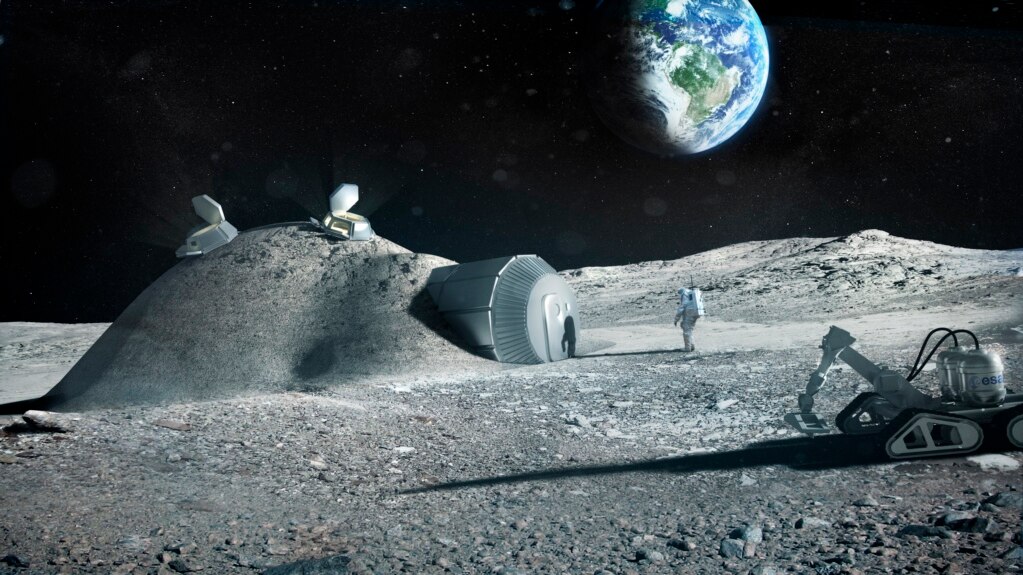European space officials have called for establishing a separate time zone on the moon.
The European Space Agency (ESA) said the idea was discussed at a recent meeting held at the agency’s Space Research and Technology Centre in the Netherlands.
ESA said the effort is part of a larger project to create a complete communication and navigation system for the moon. Space officials say such a system will be necessary to support a growing number of planned launches to the moon in coming years.
A series of space operations around the moon will require spacecraft and controllers “to communicate together and fix their positions independently from Earth,” ESA said in a statement. Currently, moon operations run on the time of the country that launched the spacecraft. But ESA officials say this will have to change when more countries and private space companies start launching their own moon missions.
ESA has partnered with the American space agency NASA on several planned lunar projects, or missions. ESA helped build NASA’s Orion spacecraft, which is expected to transport American astronauts back to the moon by the mid-2020s. NASA reported it was pleased with Orion’s last uncrewed test mission late last year.
ESA has also been involved in planning and development operations for a lunar project called Gateway. Private companies have been asked to develop living spaces, called habitats, for NASA and ESA, as part of the Gateway project.
NASA has described Gateway as a small spaceship that would remain in orbit around the moon. It would be designed as a living space for astronauts and as a laboratory for science activities. Gateway would give the astronauts a base for making trips to the moon, and possibly in the future to Mars.
Pietro Giordano is a navigation system engineer for ESA. He said after the issue was considered at the recent ESA meeting, “a joint international effort is now being launched” to establish a lunar time zone.
ESA says the planned lunar communications and navigation systems will perform much better if they “employ the same timescale, along with the many other crewed and uncrewed missions they will support.”
NASA also had to deal with the time question while designing and building the International Space Station (ISS), which is nearing the 25th anniversary of the launch of its first piece.
The ISS does not have its own time zone. Instead, it runs on Coordinated Universal Time, or UTC, which is based on time kept by atomic clocks. This helps ease the time difference between NASA and the Canadian Space Agency, as well as other space partners in Russia, Japan and Europe.
ESA says the international team looking at establishing a lunar time zone is debating whether a single organization should set and keep time on the moon.
There are also technical questions to consider. For example, clocks run faster on the moon than on Earth, gaining about 56 microseconds each day, officials said. The exact difference depends on the position of the clock and whether it is in orbit or on the lunar surface.
One of the most important things to consider is whether separate lunar time will be helpful and effective for the astronauts working there, said ESA official Bernhard Hufenbach.
“This will be quite a challenge,” Hufenbach said in a statement. He noted that a day on the moon lasts as long as 29.5 days on Earth. Hufenbach added that after successfully establishing a working time system for the moon, “we can go on to do the same for other planetary destinations.”
I’m Bryan Lynn.

